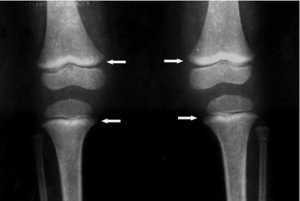Author Interviews, Diabetes, Genetic Research, JAMA, Mental Health Research, Schizophrenia / 03.04.2019
Insulin Resistance Characterizes a Subset of Schizophrenia Patients
MedicalResearch.com Interview with:
Prof Sabine Bahn MD PhD MRCPsych FRSB
Cambridge Centre for Neuropsychiatric Research
Jakub Tomasik, PhD
Department of Chemical Engineering and Biotechnology
University of Cambridge
MedicalResearch.com: What is the background for this study? What are the main findings?
Response: Schizophrenia patients are at increased risk of impaired glucose metabolism, yet the comorbidity between the two conditions cannot be fully explained by known risk factors such as obesity, smoking, stress or antipsychotic medication. Previous family and genome-wide studies have suggested that the co-occurrence between schizophrenia and impaired glucose metabolism might be due to shared genetic factors, as exemplified by increased risk of diabetes in first-degree relatives of schizophrenia patients, but the biological mechanisms underlying this association remain unknown.
We examined the association between insulin resistance, schizophrenia polygenic risk and response to treatment in 58 drug-naive schizophrenia patients and 58 matched healthy individuals while controlling for a range of demographic (age, gender, body mass index), lifestyle (smoking, alcohol and cannabis use) and clinical (psychopathology scores, treatment drug) factors.
We found that insulin resistance, a key feature contributing to the development of type 2 diabetes, significantly correlated with schizophrenia polygenic risk score in patients, with higher genetic risk of schizophrenia associated with increased insulin resistance. Furthermore, we found that patients with higher insulin resistance were more likely to switch medication during the first year of treatment, which implies lower clinical response. (more…)




 Joanne B. Newbury, PhD
ESRC Postdoctoral Fellow
King’s College London
Social, Genetic & Developmental Psychiatry Centre
Institute of Psychiatry, Psychology & Neuroscience
London, United Kingdom
MedicalResearch.com: What is the background for this study?
Response: Urban living is one of the most well-established risk factors for adult psychotic disorders such as schizophrenia. However, less is known about the role of the urban environment in subclinical psychotic experiences in childhood and adolescence, such as hearing voices and extreme paranoia. These early psychotic experiences are a developmental risk factor for adult psychotic disorders and a range of other serious mental health problems such as depression and anxiety.
It is therefore important that we understand what factors might contribute to the development of early psychotic experiences so that we might be able to intervene and prevent their onset and progression.
In a cohort of over 2000 UK-born children (The Environmental Risk Longitudinal Twin Study), we have previously shown that subclinical psychotic experiences are also around twice as common among children and teenagers raised in urban versus rural settings. We have also shown that this appears to be partly explained by social features in urban neighbourhoods such as higher crime levels and lower levels of social cohesion.
However, no studies have examined the potential link between air pollution and psychotic experiences. This is despite air pollution being a major health problem worldwide (particularly in cities), and despite emerging evidence linking air pollution to the brain.
Joanne B. Newbury, PhD
ESRC Postdoctoral Fellow
King’s College London
Social, Genetic & Developmental Psychiatry Centre
Institute of Psychiatry, Psychology & Neuroscience
London, United Kingdom
MedicalResearch.com: What is the background for this study?
Response: Urban living is one of the most well-established risk factors for adult psychotic disorders such as schizophrenia. However, less is known about the role of the urban environment in subclinical psychotic experiences in childhood and adolescence, such as hearing voices and extreme paranoia. These early psychotic experiences are a developmental risk factor for adult psychotic disorders and a range of other serious mental health problems such as depression and anxiety.
It is therefore important that we understand what factors might contribute to the development of early psychotic experiences so that we might be able to intervene and prevent their onset and progression.
In a cohort of over 2000 UK-born children (The Environmental Risk Longitudinal Twin Study), we have previously shown that subclinical psychotic experiences are also around twice as common among children and teenagers raised in urban versus rural settings. We have also shown that this appears to be partly explained by social features in urban neighbourhoods such as higher crime levels and lower levels of social cohesion.
However, no studies have examined the potential link between air pollution and psychotic experiences. This is despite air pollution being a major health problem worldwide (particularly in cities), and despite emerging evidence linking air pollution to the brain. 

























